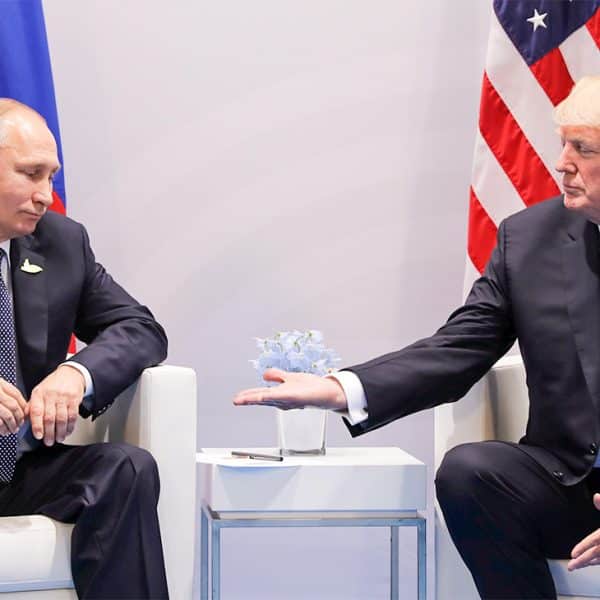Perhaps Putin should tell the Russian people and the Russian Army that his interest in resolving the conflict in Ukraine with peace negotiations lies in the possibility that the negotiations could be used to achieve a Great Power Agreement like what he and Lavrov tried to achieve with the West during the winter of 2021-2022 prior to Russia’s forced intervention in Ukraine. A New Yalta in effect.
Russian foreign affairs commentators have been speaking for some time about the need for a new Yalta agreement. A few years ago I was asked to address the Russian Academy of Sciences on the subject. I told them something that they did not want to hear: that Washington’s claim to hegemony prevented accommodation to Russian sovereignty.
A few thinking people have been perplexed at Putin’s conduct of the conflict in Ukraine. Russia could have ended the war quickly with conquest, but instead has fought a slow, restrained war that has greatly expanded the war with Putin and Lavrov bleating constantly for “peace negotiations.”
Why has Putin done this despite the protests of the Wagner Group and the Chechnya leader of the Muslim troops fighting in the Ukraine conflict? The only answer seems to be that he wants a New Yalta Agreement. If he wins the war, he loses the opportunity. So he drags out the war in the hopes that negotiations will provide a platform for addressing the “root cause of the conflict”–which he sees as the absence of a Great Power Agreement.
One problem Putin’s wishful strategy faces is Washington’s commitment to hegemony. No American president has repudiated the Wolfowitz Doctrine. Another is that the absence of victory goes down poorly with the Russian nationalists and with the troops themselves. There are news reports that Russians are suspicious and resentful of peace negotiations in Ukraine that stop short of victory.
Russian soldiers doing the fighting have told media that as tired as they are and as much as they want to go home, they want to liberate all of the regions that are once again part of Russia so that they don’t have to renew the fight in the future. As one of the soldiers asked, “Otherwise, have all the guys died in vain?”
Russia’s rescue of the Russian territories assigned to Ukraine by Soviet leaders is important to Putin, but more important is to secure a Great Power Agreement, a New Yalta, that accepts Russia as a member county free of sanctions, overthrow attempts, and conflicts.
Putin is so desirous of this agreement that he has risked the ever-widening of the Ukraine conflict to the point that drone attacks now close all Moscow airports and destroy energy infrastructure deep inside Russia. When Putin says that peace negotiations must address the “root cause of the conflict,” he means the absence of a Great Power Agreement.
Putin is not interested in a negotiated end to the conflict in Ukraine. He is hopeful of using negotiation to achieve a New Yalta. The problem that Putin faces is that Washington, wrapped up as it is in its assumed hegemony, has no comprehension of another country’s point of view.
Washington’s approach to all negotiations is to use threats, to look for levers of pressure to force other governments to accept Washington’s “solution” to the “problem,” usually a Washington creation. In other words, Washington doesn’t really negotiate. It imposes its solutions.
Trump expects the Ukrainian negotiations to fail, and has ensured as much, in order to be able to withdraw money and focus from Ukraine and use the resources to bring into operation Trump’s goal of an American Middle East colonial empire which began with Trump’s claim of Gaza as an American possession. This claim is a claim to the undersea gas reserves that run from Gaza’s border with Egypt to northern Syria. Trump’s visit in Saudi Arabia, the last remaining Arab state, was to enlist the rulers as junior partners in Trump’s American Middle East colonial empire. It seems that with Trump’s domestic agenda blocked by the judiciary, Trump will make us great again with the rise of America’s Middle East Empire.
Reprinted with permission from PaulCraigRoberts.org.

